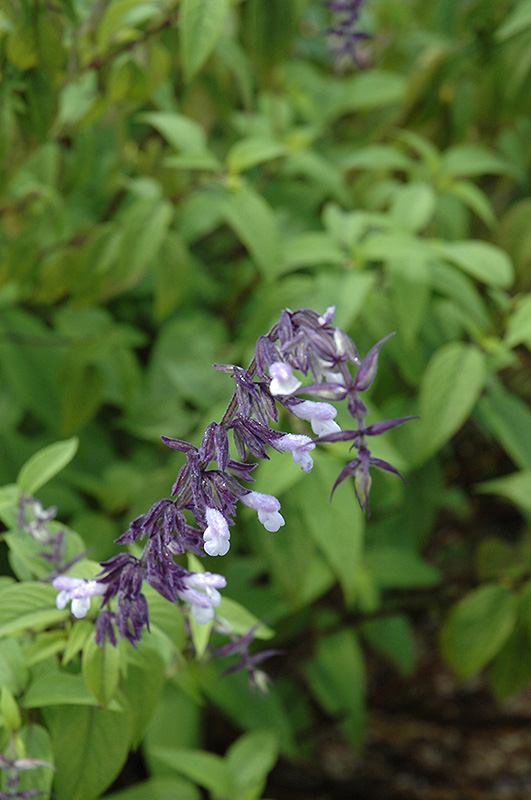Waverly Sage
Description
A distinct cultivar of salvia producing volumes of white and purple blooms all season; a beautiful addition to borders or beds with its dense and bushy form, looks fantastic in containers
Landscape Attributes
Waverly Sage is an herbaceous annual with an upright spreading habit of growth. Its relatively fine texture sets it apart from other garden plants with less refined foliage.
Waverly Sage is recommended for the following landscape applications;
Planting & Growing
Waverly Sage will grow to be about 4 feet tall at maturity, with a spread of 5 feet. When grown in masses or used as a bedding plant, individual plants should be spaced approximately 4 feet apart. Although it's not a true annual, this plant can be expected to behave as an annual in our climate if left outdoors over the winter, usually needing replacement the following year. As such, gardeners should take into consideration that it will perform differently than it would in its native habitat.
This plant should only be grown in full sunlight. It is very adaptable to both dry and moist locations, and should do just fine under typical garden conditions. It is not particular as to soil type or pH. It is somewhat tolerant of urban pollution. This particular variety is an interspecific hybrid. It can be propagated by division; however, as a cultivated variety, be aware that it may be subject to certain restrictions or prohibitions on propagation.
Waverly Sage is a fine choice for the garden, but it is also a good selection for planting in outdoor pots and containers. With its upright habit of growth, it is best suited for use as a 'thriller' in the 'spiller-thriller-filler' container combination; plant it near the center of the pot, surrounded by smaller plants and those that spill over the edges. It is even sizeable enough that it can be grown alone in a suitable container. Note that when growing plants in outdoor containers and baskets, they may require more frequent waterings than they would in the yard or garden.

